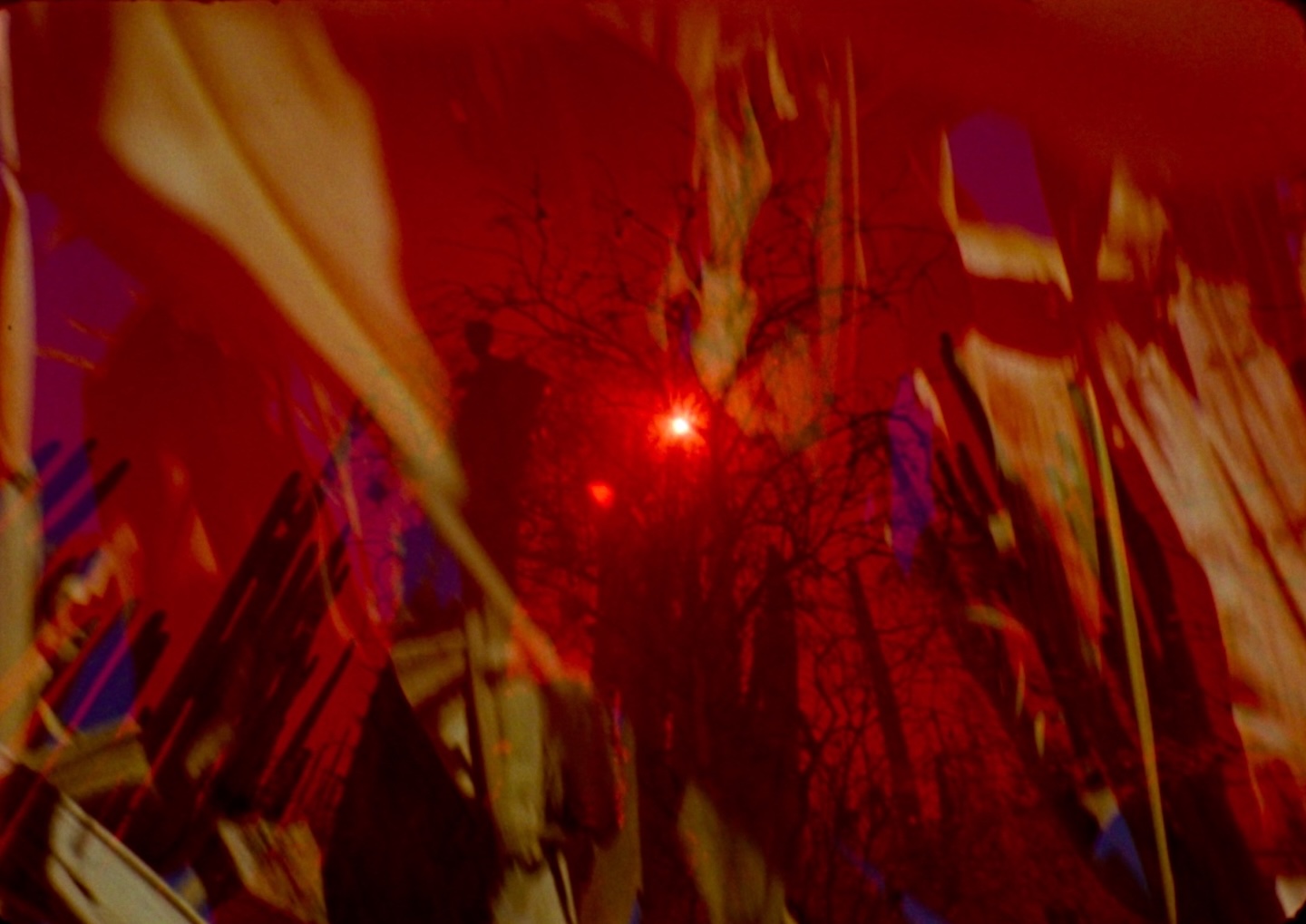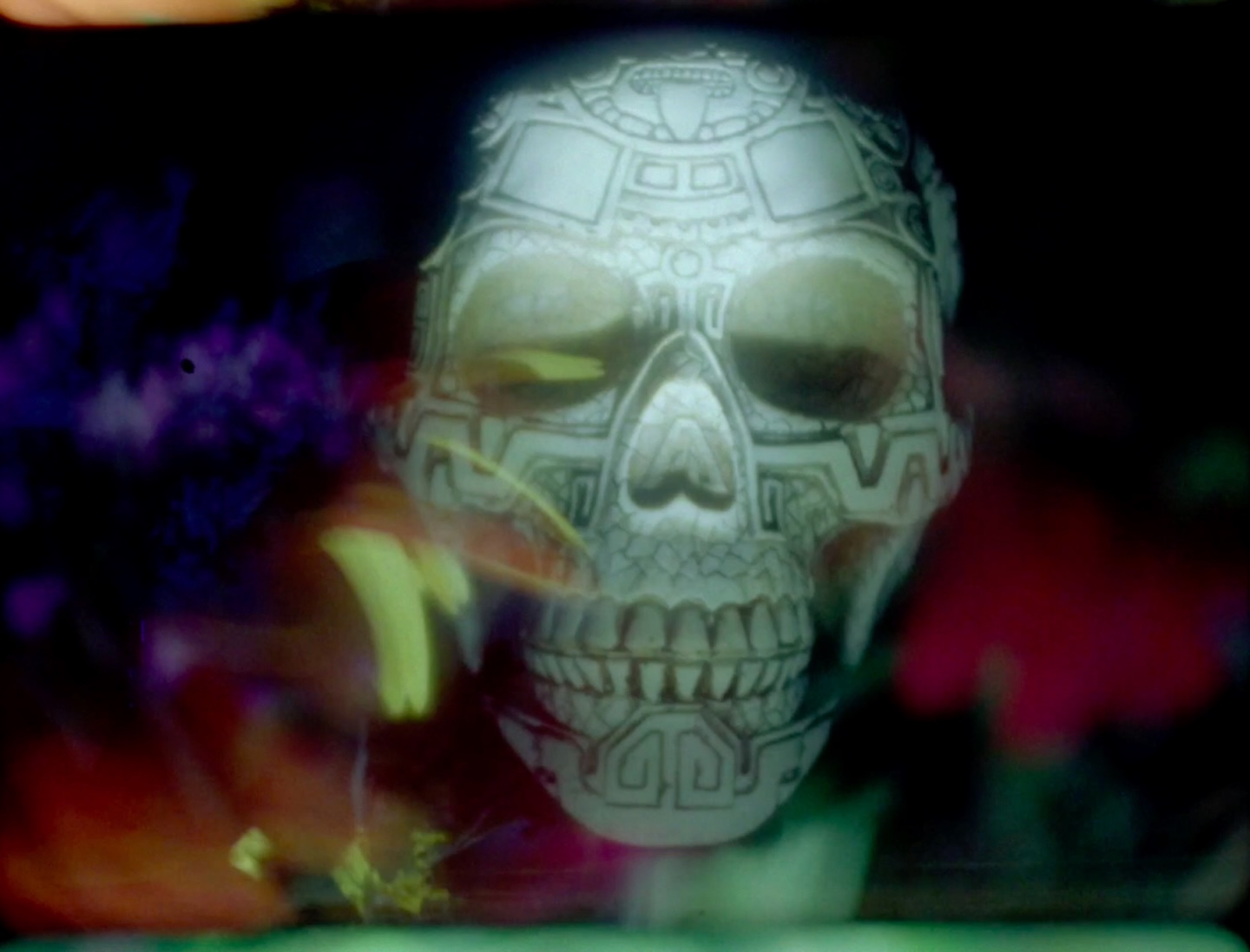January 23–March 5, 2016
Happy? Ronaldreagan. Hungry? Ronaldreagan. Afraid? Ronaldreagan. Invoke him often enough and The Gipper’s name passes from rote signification into a malleable abstraction. All too easy—as David Snyder demonstrates in “2THNDNL” with the video Ronald Reagan, Fathers & Sons (all works 2016). Dozens of jaws, clipped from TV’s talking heads, from Paul Ryan to Barack Obama—sometimes comped below the forehead of another to form a rhythmic exquisite corpse—speak, ad nauseam: “Ronald Reagan.” The syllables slur toward pure intonation. On a wall opposite this video is a second: Swansong, a supercut of snarling dogs. The cacophony, and the numbness that follows, figures our present national discourse. Never mind the gulf between that pragmatic movie cowboy and today’s nativist publicity hounds. Love him or hate him, this is a Reagan even apolitical animals can understand.
Debased rhetoric? Snyder’s got shovelfuls. In a small screening room at the gallery’s center plays The Guano, a lucidly manic pitch to “retrofit” our nation’s thousands of derelict Blockbuster Video outlets as bat colonies—and thus, per Snyder’s voiceover, “fundamentally rebrand and rebuild a Blockbuster empire and comfortably dominate the bat shit industry.” Great news for business. And for the left? It’s true, as Snyder points out, that runoff from petrochemical fertilizer is killing the planet. Guano is the economic and ecological panacea we deserve. Forget that the plan is bat-shit, and it suddenly seems workable. Delivered over illustrative yet deranged found footage—a man walks through putrid floodwaters to the phrase “flood the market”—are the sure appeals of numbers, supply/demand, and supply-side economics—the sort of Reaganite rhetoric that, through its faith in its own self-evidence, is immune to reasonable rebuttal. In Snyder’s scheme, bait roaches are “expressed” through the air; boiled roach and bat waste is “expressed” and sold (like art!). Snyder’s presentation subjects the carcass of a risen and fallen enterprise to the standards of a devalued normalcy. In one vintage clip, a nuclear family jumps for joy as shelves of VHS tapes rise, like magic, from the empty floor of a Blockbuster. Why not materialize bats and roaches there too? (Money is money, right? No matter what it’s made of?) Feasible or otherwise, The Guano offers a memorable allegory for the fallout of the Reagan era—itself an absurd premise logically pursued to the point of political cannibalism—which remains crudely nostalgic and bitterly comic. “Look at the Donner party,” says Snyder. “Did they succumb to the icy perils of a high mountain pass on account of a few missed meals? No. They rebranded.” Stirring stuff, and hard to dismiss. As the video crescendos, Snyder grimly sloganeers the true spirit of American striving: “Dream versus Dream.”
From such healthy competition should follow modern comforts for all—but something has gone wrong. Running through the rear of the gallery, like a strip of calcified virtuality, is the installation Porous, Poor us, Por us. A stuccoed shelf or plank snakes between rooms, over doorways; interpenetrated and supported by manufactured, captive junk: the extendable handle of a rolling suitcase, a ROAD CLOSED AHEAD sign (crumbling infrastructure, anyone?), half a Jacuzzi, an office chair, a crutch. The rooms are atmospherically dim, lit ochre by small lamps, casting the wares in a state of disuse—a thrift-store or sidewalk-sale grime, if not quite landfill. Distributed along the shelf are three boom boxes, which contribute recordings of three auctioneers—Christie’s, QVC, and a cattle sale—to the persistent cries of politicians and dogs. The sculptural environment—architectural, scatological, and practical, in its precarious, un-ideal way—resembles a bent timeline, caked with guano-like gray, recalling the promises of the past three decades, unimproved-upon, now studded with the trash of today. Money is money? Stuff is stuff? In this, our tautologies have yet to evolve—though for the planet’s sake, they should. The joke, for Snyder, is at everyone’s expense—most of all those too self-absorbed to get it. Would that us tail-chasers would listen up.



















